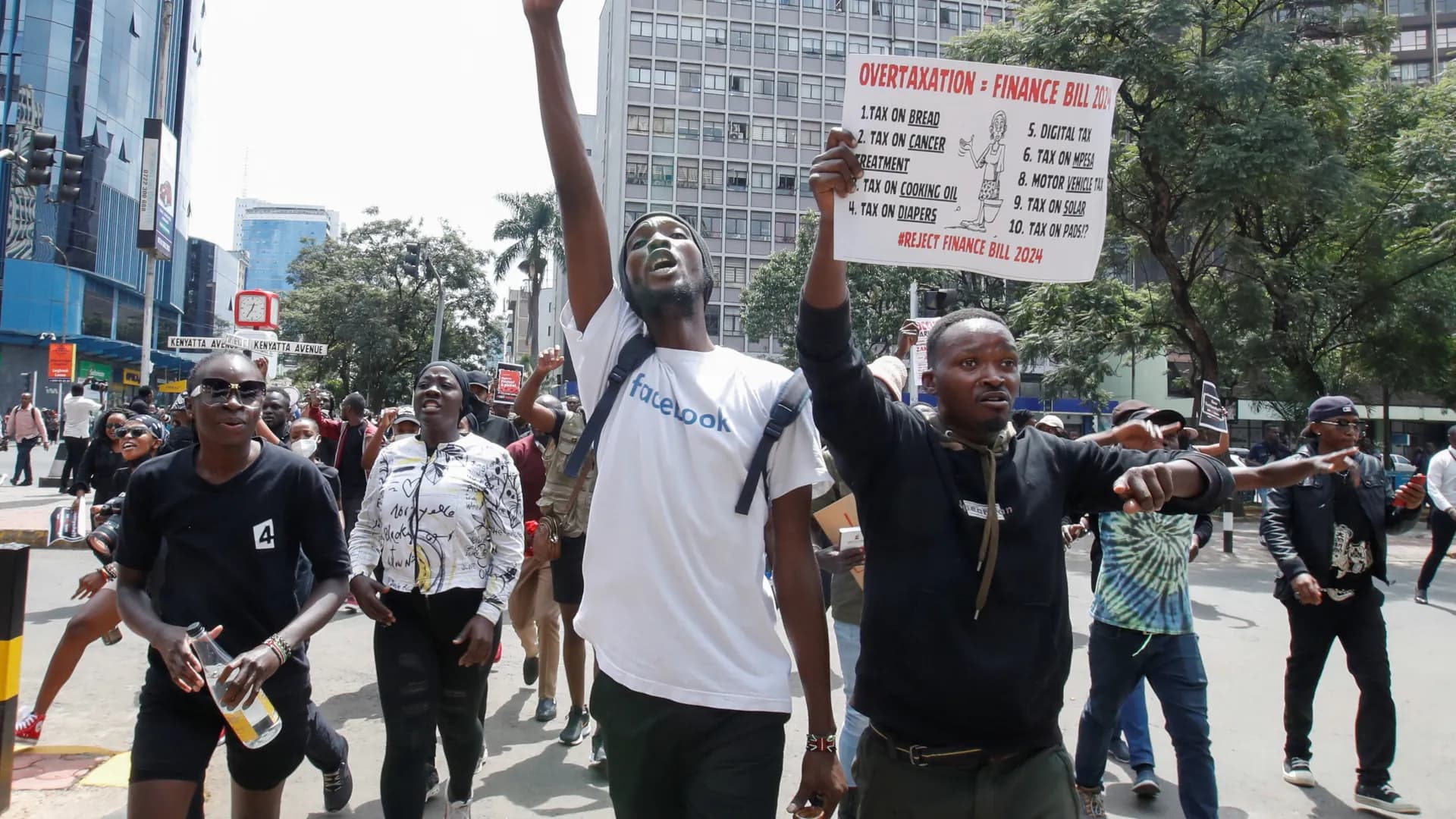We're loading the full news article for you. This includes the article content, images, author information, and related articles.
As Kenya grapples with mounting public debt and calls for increased revenue, citizens are being urged to resist broad tax hikes that could further burden households and stifle economic growth.

Nairobi, Kenya – The recommendation by the World Bank for Kenya to increase consumption taxes, specifically Value Added Tax (VAT) and excise duty, to address a burgeoning pile of pending bills has ignited a critical national discussion. With government arrears reportedly surging from KSh 421.6 billion in March to KSh 526 billion by June 2025, the urgency to settle these debts is undeniable. However, experts and citizens alike are questioning the economic and social ramifications of further taxing an already strained populace.
Kenya's tax policy has frequently been a point of contention, often leading to public outcry and protests. In June 2024, widespread demonstrations erupted across the country against proposed tax hikes in the Finance Bill, which aimed to raise an additional KSh 346.7 billion (approximately $2.7 billion) to reduce reliance on external borrowing. These protests, largely driven by younger Kenyans, saw thousands take to the streets in Nairobi and other major towns, with some demonstrations turning deadly. The proposed taxes included a 16% VAT on bread, a 2.5% motor vehicle tax, and increased levies on essential goods and financial transactions.
In response to the public pressure, the government made concessions, withdrawing some of the most contentious proposals, such as the VAT on bread and the motor vehicle tax. However, the underlying need for revenue generation persists, with the government facing pressure from international lenders like the World Bank and the International Monetary Fund (IMF) to implement fiscal reforms. The IMF, for instance, supports an economic reform program in Kenya and had previously suggested some of the controversial tax changes.
Kenya's tax code is shaped by the Constitution of Kenya (2010), which outlines principles of taxation and establishes institutions for its oversight. The formulation and implementation of tax policy are influenced by a complex interplay of political, structural, and institutional factors. Frequent changes in tax laws and policies, often driven by the annual omnibus Finance Bill, have raised concerns about transparency, effectiveness, and efficiency.
The government's revenue sources primarily include direct taxes (such as Pay As You Earn - PAYE, and Corporate Income Tax - CIT), indirect taxes (like VAT and excise duties), customs and import duties, external loans, domestic borrowing, grants, donations, and revenue from government services and property. While direct and indirect taxes form the largest portion of tax revenues, their performance has stagnated in recent years.
The debate over tax hikes involves various stakeholders. The government, through the National Treasury and the Kenya Revenue Authority (KRA), is tasked with raising sufficient revenue to meet development goals and service public debt. Treasury Cabinet Secretary John Baddy has indicated that consistent failure by the KRA to meet collection targets contributes to increased taxes.
Civil society groups and citizens, particularly the youth, have been vocal in their opposition to blanket tax increases, arguing that they disproportionately affect low-income households and exacerbate the cost-of-living crisis. Organizations like the Motorists Association of Kenya have questioned why ordinary Kenyans should bear the burden of debts linked to mismanaged projects. Opposition leaders have also urged legislators to scrutinise finance bills and remove clauses that would burden the poor.
Kenya's public debt stood at KSh 10.6 trillion as of June 2024, with the debt-to-GDP ratio increasing to 70.0%, exceeding the International Monetary Fund's (IMF) threshold of 50.0% for developing countries. Interest payments alone absorbed approximately one-third of tax revenue in 2025. The country's economy grew by 5.2% in 2023, with projections of 5.4% in 2024 and 5.6% in 2025, driven by services and household consumption. Inflation is expected to decline to 6.2% in 2024 and 5.5% in 2025.
Further blanket tax hikes, particularly on consumption, risk deepening the cost-of-living crisis, shrinking household purchasing power, and potentially triggering renewed public unrest. Such measures could also stifle economic activity, as businesses struggle with increased costs and reduced consumer spending. The World Bank itself notes that Kenya's fiscal path remains fragile amid high debt vulnerabilities and weak revenue growth, despite some macroeconomic improvements.
A significant uncertainty lies in the government's ability to broaden the tax base effectively and improve tax compliance, particularly in the informal and digital economies, without resorting to blanket increases. There is also an ongoing debate about the transparency and accountability of government spending, with calls for cuts in wasteful expenditure and the shelving of non-essential projects.
The budget-making process for the 2025/2026 fiscal year began in August 2024 with the budget circular, followed by the Budget Review and Outlook Paper in September. The Finance Bill for 2025 is expected to be received by the National Assembly's Finance Committee by April 30, 2025. The Central Bank of Kenya (CBK) has recently lowered its base lending rate to 9.25% from 9.5%, marking the eighth consecutive reduction, aimed at stimulating economic growth.
Kenyans should closely monitor the upcoming Finance Bill for 2025 and advocate for a balanced approach to fiscal management. This includes demanding greater accountability in government spending, exploring alternative revenue sources such as targeted levies on luxury items, and strengthening the KRA to enhance collection efficiency and compliance. The ongoing dialogue between the government, civil society, and international lenders will be crucial in shaping Kenya's economic trajectory.
Keep the conversation in one place—threads here stay linked to the story and in the forums.
Sign in to start a discussion
Start a conversation about this story and keep it linked here.
Other hot threads
E-sports and Gaming Community in Kenya
Active 9 months ago
The Role of Technology in Modern Agriculture (AgriTech)
Active 9 months ago
Popular Recreational Activities Across Counties
Active 9 months ago
Investing in Youth Sports Development Programs
Active 9 months ago